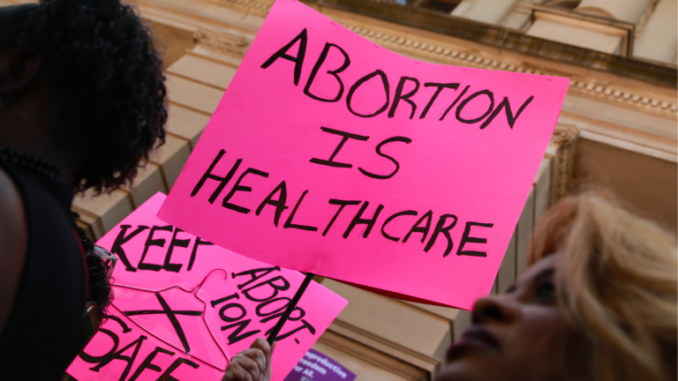
Introduction to Health Interventions and Abortion
Welcome to a thought-provoking journey into the intricate realm of health interventions and their impact on abortion rates. Delve into the fascinating world of human behavior and decision-making, exploring how these factors intersect with reproductive health issues. Join us as we navigate through the challenges, controversies, and alternative solutions surrounding abortion as a key health intervention. Let’s unravel the complexities together and discover the importance of compassion in addressing sensitive topics like abortion.
Understanding Human Behavior and Decision Making
Human behavior and decision-making are complex processes influenced by a myriad of factors. Our choices often stem from a mixture of personal beliefs, societal norms, past experiences, and environmental cues. It’s fascinating how our minds work in intricate ways to process information and make decisions that impact our lives.
When it comes to one health interventions like abortion, understanding human behavior becomes crucial. People’s attitudes towards reproductive rights can be deeply rooted in cultural values or religious beliefs. This makes it essential for healthcare providers and policymakers to approach these sensitive topics with empathy and open-mindedness.
Moreover, emotions play a significant role in shaping our decisions regarding health interventions. Fear, guilt, shame, or relief can all influence how individuals perceive their options when facing unplanned pregnancies. By acknowledging the emotional aspect of decision-making, we can better support individuals through difficult choices.
In essence, delving into the complexities of human behavior sheds light on why people make the decisions they do – especially when it comes to sensitive matters like abortion.
The Impact of Health Interventions on Abortion Rates
Health interventions play a crucial role in shaping abortion rates within communities. By providing access to comprehensive reproductive health services, including contraception and education, individuals are empowered to make informed choices about their sexual and reproductive health. These interventions not only reduce the need for abortions but also contribute to overall well-being.
When individuals have the resources and support necessary to prevent unintended pregnancies, they are more likely to avoid situations where abortion might be considered. Health interventions focus on prevention through education, counseling, and healthcare services that address the root causes of unplanned pregnancies.
Moreover, these initiatives help reduce stigma surrounding abortion by promoting open discussions and destigmatizing reproductive health care. By normalizing conversations about sexual health and choice, individuals feel more comfortable seeking out the care they need without fear of judgment or discrimination.
The impact of health interventions on abortion rates is significant in promoting healthy decision-making and empowering individuals to take control of their own bodies and futures.
Challenges and Controversies surrounding Abortion as a Health Intervention
Navigating the complexities of abortion as a health intervention brings forth a myriad of challenges and controversies. One health key issue revolves around differing cultural, religious, and ethical beliefs regarding the sanctity of life and women’s reproductive rights. These deeply rooted perspectives often clash when discussions about abortion arise.
Additionally, legal restrictions and varying policies on abortion access create barriers for individuals seeking this medical procedure. The debate over when life begins further fuels disagreements on the morality and legality of abortion. This ongoing societal division can make it difficult to implement comprehensive healthcare strategies that prioritize women’s reproductive health.
Furthermore, stigma surrounding abortion can lead to judgment, shame, and discrimination against those who choose to undergo the procedure. This negative perception can deter individuals from seeking proper medical care or support during what is already a challenging time in their lives. Addressing these challenges requires open dialogue, empathy, and a commitment to respecting diverse viewpoints on this complex issue.
Alternative Solutions for Addressing Reproductive Health Issues
Looking for alternative solutions to address reproductive health issues beyond abortion? One approach is promoting comprehensive sex education programs that empower individuals with the knowledge and skills to make informed decisions about their sexual health. By teaching about contraception, consent, and healthy relationships, we can help prevent unintended pregnancies and reduce the need for abortions.
Another option is increasing access to affordable and quality reproductive healthcare services, including contraceptives and family planning resources. By ensuring that individuals have convenient access to these essential services, we can support them in making choices that align with their reproductive goals.
Advocating for policies that prioritize women’s health and rights is also crucial in addressing reproductive health issues. This includes supporting initiatives that protect access to safe and legal abortion care while also working towards reducing barriers such as stigma, discrimination, and misinformation surrounding abortion.
By exploring a range of alternative solutions like education, increased access to healthcare services, and advocacy efforts, we can take significant steps towards improving reproductive health outcomes for all individuals.
Conclusion: The Importance of Comprehensive and Compassionate Approaches to Addressing Abortion and Human Behavior
When it comes to addressing sensitive issues like abortion and understanding human behavior, it is crucial to approach them with compassion and a comprehensive mindset. Health interventions play a significant role in shaping the outcomes of such complex situations. By promoting education, access to healthcare services, and supportive environments, we can work towards reducing the need for abortions while respecting individual choices.
It is essential to consider the various factors that influence decisions related to reproductive health and not just focus on restrictive measures. Alternative solutions like providing comprehensive sex education, access to contraceptives, and support for pregnant individuals can contribute positively towards improving overall reproductive health outcomes.
By adopting inclusive and empathetic approaches towards addressing abortion as a health intervention and understanding human behavior regarding reproductive choices, we can create a more supportive environment that respects individual autonomy while promoting overall well-being. It’s through compassion and comprehensive strategies that we can truly make a difference in these critical areas of public health.
Leave a Reply